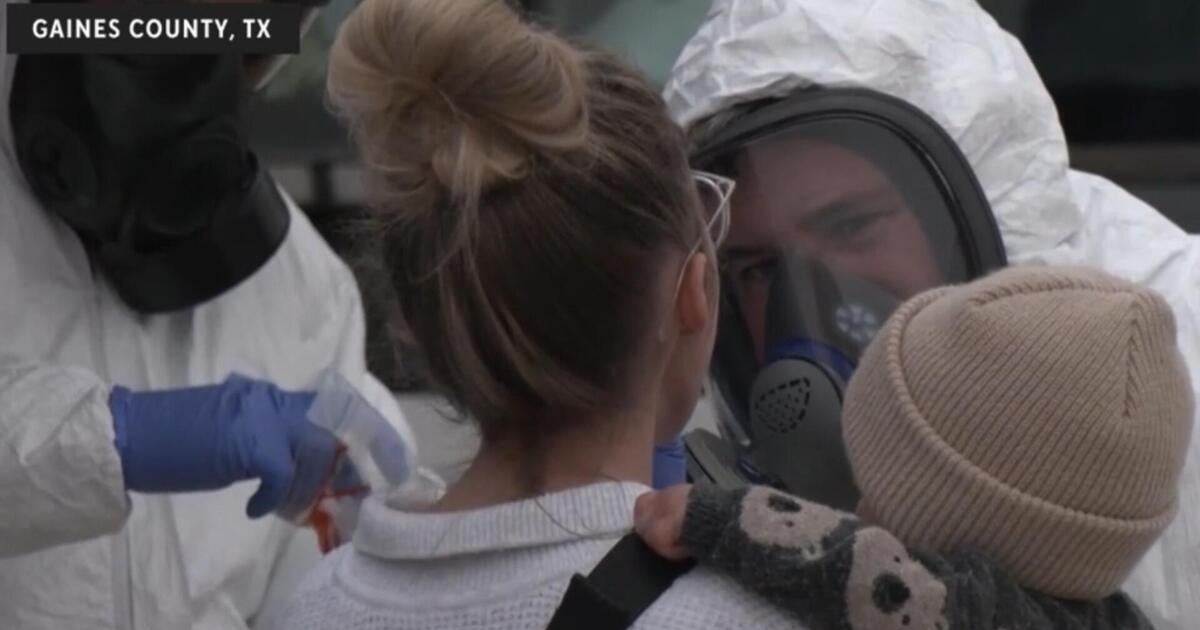Unvaccinated Children Fuel Texas Measles Outbreak: Understanding the Crisis
As Texas grapples with a significant rise in measles cases, health experts are sounding the alarm. The resurgence of this highly contagious virus has been attributed largely to unvaccinated children, raising serious concerns about public health and safety. In this article, we’ll delve into the implications of vaccine hesitancy, the recent outbreak in Texas, and the steps that can be taken to mitigate this growing crisis.
Measles: A Brief Overview
Measles is a viral infection that can lead to severe health complications, including pneumonia, encephalitis, and even death. The disease is transmitted through respiratory droplets, making it incredibly infectious. In fact, according to the Centers for Disease Control and Prevention (CDC), measles is so contagious that if one person has it, about 90% of the people close to that person who are not immune will also become infected.
The vaccine for measles, part of the MMR (measles, mumps, and rubella) vaccine, has proven to be highly effective. Two doses of the vaccine provide about 97% immunity against measles. However, as vaccination rates decline due to various factors—including misinformation and personal beliefs—communities become vulnerable to outbreaks.
The Rise of Vaccine Hesitancy
In recent years, vaccine hesitancy has become a major public health challenge across the United States, including Texas. This hesitancy can stem from a variety of sources, such as:
- Misinformation: The spread of false information regarding vaccine safety on social media platforms has contributed significantly to parents’ fears about vaccinating their children.
- Philosophical Beliefs: Some parents choose not to vaccinate based on personal or religious beliefs, often prioritizing individual choice over collective health benefits.
- Fear of Side Effects: Concerns about potential side effects, although largely unfounded, can deter parents from vaccinating their children.
These factors have led to declining vaccination rates, especially in certain communities, and have set the stage for outbreaks to occur.
The Current Outbreak in Texas
As of late 2023, Texas has witnessed a concerning spike in measles cases, with unvaccinated children at the epicenter of this outbreak. Reports indicate that the majority of the affected individuals are those who have not received the MMR vaccine. This alarming trend highlights the direct correlation between vaccination rates and disease outbreaks.
Health officials are particularly worried about the concentration of unvaccinated children in specific areas, often influenced by local attitudes towards vaccines. In some regions, vaccination rates have dropped below the herd immunity threshold of 95%, which is necessary to protect those who cannot be vaccinated, such as infants and individuals with compromised immune systems.
The Implications for Public Health
The implications of this outbreak are severe. Beyond the immediate health concerns for those infected, there are broader public health challenges that arise:
- Increased Healthcare Costs: Treating measles and its complications can be expensive. Hospitals and healthcare providers are burdened with the cost of care for infected individuals, which can strain resources.
- Impact on Community Immunity: The decline in vaccination rates affects community immunity, making it easier for diseases to spread. This creates a ripple effect that can endanger vulnerable populations.
- Fear and Anxiety: Outbreaks can lead to increased fear and anxiety among parents, who may worry about the safety of sending their children to school or public places.
Combating Vaccine Hesitancy
To address the crisis of unvaccinated children fueling the Texas measles outbreak, it is crucial to tackle vaccine hesitancy head-on. Here are several strategies that can help promote vaccination:
- Provide Accurate Information: Health authorities and pediatricians should offer clear, evidence-based information about the safety and efficacy of vaccines. Educational campaigns can help dispel myths and provide reassurance.
- Engage Communities: Building trust within communities is essential. Engaging local leaders and influencers can help bridge the gap and promote vaccination as a community health priority.
- Support for Healthcare Providers: Training healthcare providers to effectively communicate with hesitant parents can lead to more children being vaccinated. Providers should be equipped to address concerns and answer questions empathetically.
- Policy Interventions: Implementing policies that encourage vaccinations, such as school immunization requirements, can help increase coverage rates and protect public health.
The Role of Parents and Communities
Parents play a crucial role in the fight against vaccine hesitancy and the protection of public health. By making informed decisions and prioritizing vaccination, parents can safeguard not only their children but also the broader community. Here are some ways parents can contribute:
- Stay Informed: Keeping up-to-date with reliable information from trusted sources such as the CDC and the World Health Organization can help parents make informed choices.
- Discuss Concerns: Parents should feel empowered to discuss any concerns they have about vaccines with their healthcare providers. Open communication can lead to better understanding and decision-making.
- Advocate for Vaccination: Parents can advocate for vaccination within their communities, sharing positive experiences and supporting local health initiatives.
Looking Ahead: A Path Forward
As Texas faces the challenges of a measles outbreak fueled by unvaccinated children, it is essential to remain hopeful and proactive. By fostering a culture of vaccination, providing support and education, and addressing the root causes of vaccine hesitancy, communities can turn the tide against this public health crisis. The key lies in collaboration—between healthcare providers, parents, and local leaders—to create a healthier future for all.
In conclusion, the rise in measles cases in Texas serves as a stark reminder of the importance of vaccination. By understanding the factors contributing to this outbreak and working together to promote vaccine acceptance, we can protect our children and our communities from preventable diseases. It’s time to prioritize public health and ensure that every child has the opportunity to grow up healthy and safe.
See more WebMD Network



